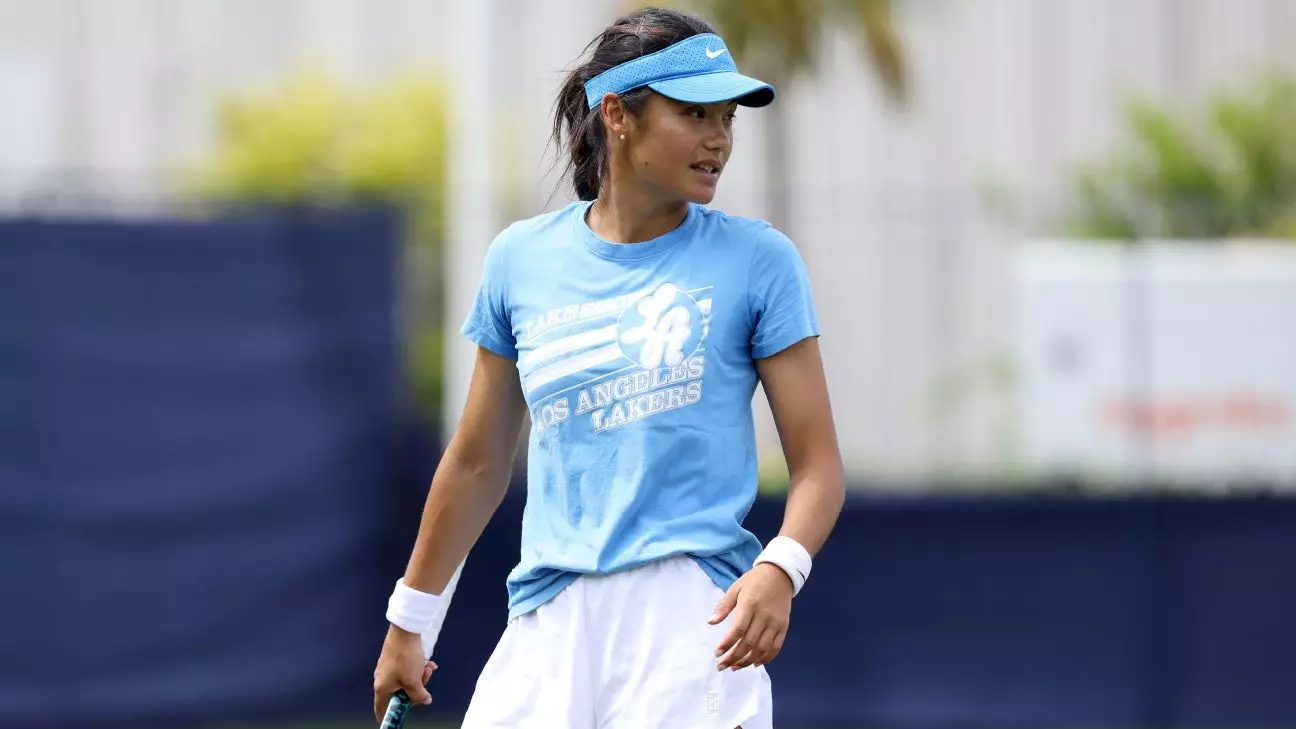Emma Raducanu, the 2021 US Open champion, recently opened up about her harrowing experiences with a stalker, which culminated in Wimbledon taking significant actions to ensure her safety. The distressing events surrounding this situation—leading to her vulnerability both on and off the court—serve as a critical reminder of the darker side of fame and the importance of protective measures in sports, particularly for female athletes.
The stalking incident highlights the often-overlooked issue of personal safety in professional sports. For Raducanu, her emotional turmoil was palpable when she recounted the fear induced by an unexpected sighting of her stalker at the Dubai Championships. Many may dismiss such threats as mere attention, but for Raducanu, this was a deeply unsettling experience that affected her mental and emotional well-being. The reality is that such situations can lead to severe consequences, not only for athletes but for anyone thrust into the public eye.
Wimbledon’s Proactive Response
Fortunately, the All England Club responded appropriately when alerted to the situation. By blocking the stalker from purchasing tickets through the public ballot, Wimbledon took a proactive stance that demonstrates a commitment to athlete safety. Raducanu expressed her gratitude for the swift action taken by event organizers, which assures not only her but other players that they can focus on their game without additional anxiety. This response should set a standard for all sporting events and organizations worldwide.
The reassuring hands of law enforcement offered Raducanu peace of mind, a luxury that shouldn’t be overlooked. It is not enough for event organizers to merely provide a venue; they must prioritize the security and well-being of their athletes, who face both the pressures of high-level competition and the potential of personal threats. The statement by Raducanu that “I know that I’m not the first athlete to go through this, and I probably won’t be the last” rings alarmingly true and emphasizes the persistent challenges female athletes face.
Female Empowerment in Sports
Raducanu’s experience opens up a larger conversation about safety and empowerment in women’s sports. Her acknowledgment of Katie Boulter, British No. 2, for speaking out about online abuse reinforces the notion that athletes must not only be skilled competitors but also advocates for themselves and each other. This solidarity is essential in fostering an environment where women feel secure and empowered amidst the competitive strains of the sports world.
In an age where discussions about mental health and personal safety are becoming increasingly prominent, Raducanu’s narrative adds a necessary voice to the dialogue. The need for comprehensive support systems that address stalking and abuse in all its forms becomes evident. It’s imperative to cultivate an atmosphere that empowers women, not just to excel in their sport but to navigate the complexities of fame safely. As Raducanu continues her journey, her experiences and her voice may inspire a movement toward greater safety measures and raise awareness around these critical issues affecting women in sports globally.


Leave a Reply